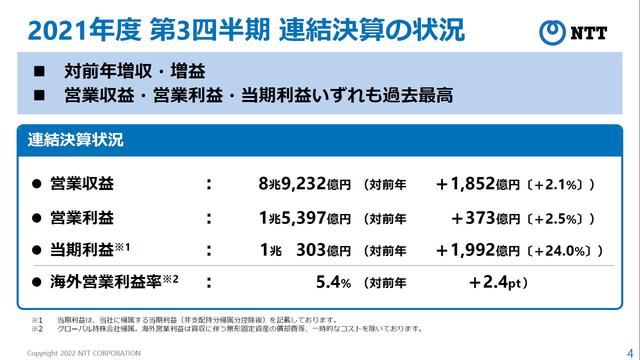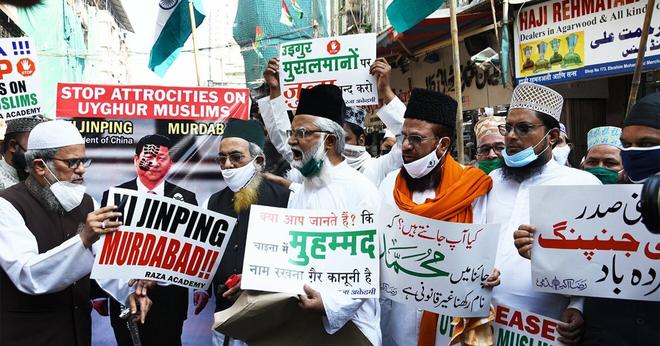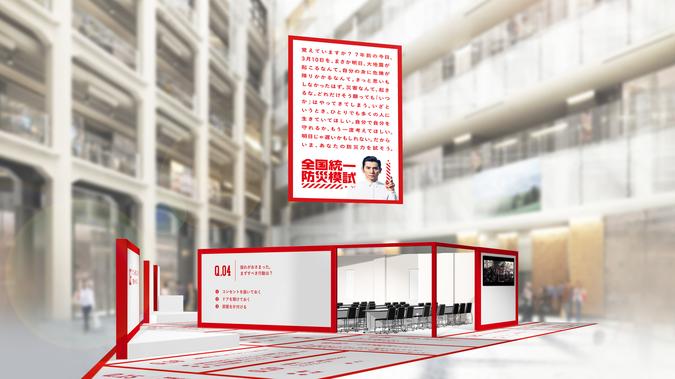Minyu Fukushima [Testimony at that time] Mr. Yukihide Matsumoto, Mayor of Naraha Take "after" ... Government pressure
"It was based on being close to the townspeople, but there were times when we had to make political decisions." Naraha Town is regaining its pre-Great East Japan Earthquake as various cars come and go on National Highway No. 6. Yukihide Matsumoto, the mayor of the town, expressed his thoughts on dealing with compound disasters while carefully choosing words.
On March 12, 2011, Naraha Town evacuated to Iwaki City following the accident at the Fukushima Daiichi Nuclear Power Plant of Tokyo Electric Power Company. After that, the town was designated as a caution zone, and the townspeople were forced to live in evacuation. Matsumoto, who was the chairman of the town council, appealed for the regeneration of Furusato, saying, "Return the negative town to zero and then to positive," and was elected for the first time in the town mayor election held in April 2012.
Soon I faced the problem of the interim storage facility, where the town was one of the candidate sites. Matsumoto, who thought that it was "extremely strict," frequently held town administration round-table conferences after taking office as the mayor and listened to the opinions of the townspeople. Then, in January 2014, he requested the then governor, Yuhei Sato, to change the plan of the interim storage facility, excluding Naraha Town, saying that the town would not be able to accept high-concentration contaminated waste.
In response to Matsumoto's intention, the government agrees to consolidate the interim storage facilities into two towns, Okuma and Futaba. Regarding this big political decision related to the reconstruction of the town, Matsumoto still said, "There are other towns and villages, and there are things I can't say."
The next thing I faced was the cancellation of the evacuation order in the town that had become the "preparation area for canceling the evacuation order" from the caution area. In May 2014, Matsumoto expressed his intention to make the decision to return to town "after the spring of 2015", citing 24 items such as infrastructure restoration as the criteria necessary for cancellation.
Matsumoto dared to set an ambiguous time, saying that "it is not easy to meet the conditions necessary for life." However, a government official bite into this, saying, "Take the rest." The early lifting of the evacuation order in Naraha Town, which had the lowest radiation dose in Futaba District, had important implications for the government. Matsumoto recalls the pressure as "great."
However, Matsumoto was particular about clearing the conditions without compromising. One of the issues at that time was the mental damage compensation of 100,000 yen per month, which was terminated when the evacuation order was lifted. The victims were worried about what would happen to their lives after the cancellation. Matsumoto urged the government's Nuclear Damage Compensation Dispute Review Board and leading politicians to break through.
In June 2015, the government decided to pay mental damages for the "evacuation order cancellation preparation area" and "restricted residence area" until March 2018 regardless of the time of cancellation. Matsumoto decided to accept the cancellation of the evacuation order on September 5, 2015, taking into consideration other conditions.
Matsumoto said, "At that time, the town was finally close to zero." (Titles omitted)
[Interview with Mayor Yukihide Naraha]
We asked Mayor Naraha (60), Yukihide Matsumoto, about the problem of the interim storage facility where the town was one of the candidate sites and how the evacuation order was lifted.
Request for evacuation acceptance to Misato "Go with the mayor's name"
-Where were you when the Great East Japan Earthquake struck on March 11, 2011? "At that time, I was the chairman of the town council. After the regular meeting in March, I was shaken when I was at home. When I rushed to the town hall, the disaster countermeasures headquarters was established." Since I was working for a company that was a business, the mayor of Takashi Kusano at that time asked me to be an advisor. After that, I worked with the town disaster countermeasures headquarters. "
―Naraha Town will evacuate to Iwaki City on the 12th, but what happened? "On the morning of the 12th, a police officer came to the office and asked me to evacuate. I remember pointing out that the evacuation order should come from the Prefectural Nuclear Disaster Countermeasures Center (off-site center)." However, he advised Mayor Kusano, "It's not just that the police ask you to evacuate. You should prepare." "I thought about evacuating to Iwaki City, but I called the city hall on a general line. I thought it wouldn't work. I called the mobile phone of Mayor Takao Watanabe, who was in a friendly relationship there. Mayor Kusano took the place and asked Mayor Watanabe to accept him. "
-On the 16th, some of the townspeople will evacuate to Aizumisato Town. "The evacuation center in Iwaki City has become saturated with many townspeople. I told Mayor Kusano,'Please ask the sister city of Aizumisato to accept the evacuation.' The mayor said,'Then I will go.' However, because the site was noisy, he said, "There is a mayor. I will go by name." I headed to Aizumisato on the 15th. " At that time, I was told to say hello to the town council. I thought it was unusual to say hello to the council of another town. I asked for evacuation as the mayor's name and officially accepted it. "
-What was the situation of Naraha townspeople at that time? "In addition to Iwaki City and Aizumisato Town, the situation was dispersed (the townspeople), such as moving to acquaintances' homes inside and outside the prefecture. I am only grateful to Iwaki City and Aizumisato Town for their acceptance."
Intermediate storage and designated waste, both are
-As evacuation continues, the government will designate the town as a caution zone in April and will ask for the establishment of an interim storage facility in Futaba District in December. Did you hear anything from Mr. Kusano about the interim storage facility? "I remember hearing it in a small talk, but I've never heard of it in a formal way, such as explaining it to Congress as the mayor."
-There is a testimony that Mr. Kusano was willing to accept radioactive waste management facilities. "I haven't heard exactly"
-Naraha Town was named as a candidate site along with Okuma and Futaba Towns. Have you been consulted by the government as chairman? "It's not"
![Minyu Fukushima [Testimony at that time] Mr. Yukihide Matsumoto, Mayor of Naraha, take 福島民友 【証言あの時】楢葉町長・松本幸英氏 『以降』取れ...政府圧力](https://website-google-hk.oss-cn-hongkong.aliyuncs.com/drawing/article_results_9/2022/3/9/ab3db1aa73490c5a70657c280fe9cf85_1.jpeg)
![Minyu Fukushima [Testimony at that time] Mr. Yukihide Matsumoto, Mayor of Naraha, take](https://website-google-hk.oss-cn-hongkong.aliyuncs.com/drawing/article_results_9/2022/3/9/ab3db1aa73490c5a70657c280fe9cf85_0.jpeg)
-So how did you feel that Naraha Town was listed as a candidate site for the facility? "I thought it would be extremely difficult."
-I was elected for the first time in the Mayor's election in April 2012. What was your feeling at that time? "Naraha was not a zero but a minus town, so I wanted to return it to zero and bring it to the plus. I appealed to" regain the original scenery "and faced the election campaign and supported it. I've been able to do it today. "
-What were the challenges of the town at that time? "Since the townspeople were scattered, the first thing to do was to listen to a lot of voices and reflect them in the town administration. We held the town administration round-table conference 34 times at an early stage."
-In August 2012, Naraha Town changed from a caution area to an evacuation order cancellation preparation area. At the same time, I think the flow of setting up an interim storage facility in Naraha Town has accelerated. "I'm not sure when it was, but I remember the request in the form of the Futaba Regional Municipal Association."
-At other candidate sites, the government has consulted with the chief, but what about Naraha Town? "Since I took office, I don't really remember what to do directly."
-After the birth of the LDP-NKP, in December 2013, the government will request the establishment of interim storage facilities in three towns such as Naraha and the acceptance of designated waste disposal sites in Tomioka Town. Was there an individual story at this time? "I have to choose a word because it's fragile here, but I think it was shaken by the Futaba Municipal Association and gathered opinions."
-Next is Naraha Town's own judgment. In January 2014, one month after the government's request, he requested the then Governor Yuhei Sato to review the plan for the interim storage facility. What kind of background was there? "What should I say? Comparing the areas of Futaba, Okuma, and Naraha (of the installation plan at that time), Futaba and Okuma were larger. With that in mind, I thought it would be possible to consolidate them." In addition to the intermediate storage, there was talk of a designated waste disposal site in the town at the same time. Both of them were judged to be unacceptable to the townspeople. "
-Did you consult with other towns and villages about the idea of reviewing the plan? "Come on, how was it?"
-Did you consult with someone in the government? "I can only say how it was."
-The government will later approve the review of the facility plan in the form that Naraha Town will be removed. How did you feel at that time? "I expected that the townspeople wouldn't accept the two, the intermediate storage and the disposal site. There was a certain sense of relief that one of them was eliminated."
-Is there anything you can't say about the debate over the interim storage facility? "It's a complicated story, and there are stories about other towns and villages. I want you to understand that."
I did not decide to cancel after receiving the extension of compensation
-I would like to ask about the circumstances leading up to the cancellation of the evacuation order in Naraha Town. He made a return plan in March 2014 and showed his thoughts on returning in May. "We set and verified 24 items (infrastructure restoration, etc.) from the viewpoint of what conditions should be met to return home. Then, in May, we showed the decision to return to town at the earliest after spring 2015. "It was an expression that I thought that I needed some time, but it was amazing to say," Take the rest "." It's good until the spring of 2015, but after that, it will last forever. " Tone "
-Is it that you were asked to show your intention to cancel at an earlier stage? "That's right, but I was thinking of making a decision when I was able to clear the environment where I could return to town."
-In June 2014, the JR Joban Line resumed at Tatsuta Station (Naraha Town). A living environment restoration project will start in July. What is the perception of the townspeople at this time? "It was visible to the townspeople that the infrastructure and decontamination work had progressed all at once. I felt that expectations for reconstruction had begun to emerge. I took the lead in particular. When I returned to January, it was a pitch-black town with no street lights. "
-When did the debate about canceling the evacuation order cancellation preparation area get into full swing? "I think it's about the spring of 2015"
-What are the challenges at that time? "It goes back a little, but when the town changed from an inaccessible caution area to an evacuation order cancellation preparation area, the residents felt that it was" reconstruction ". However, there was talk of compensation. When I came in, the atmosphere was reversed, saying, "The review is quick." It is natural to be close to the townspeople, but sometimes I had to make political decisions. At that time, I had to make a political decision. It was the starting point. "" Before the preparation area was lifted, when the townspeople came to Naraha and looked at their house, it was rough. There was a talk that they wanted compensation. The government at that time because the compensation was insufficient. Mr. Yoshihisa Nomi, who was the chairman of the Nuclear Damage Compensation Dispute Review Board, visited us and made improvements. "
-For "mental damage" that will be terminated if the evacuation order is lifted, the government will pay the "restricted residence area" and "evacuation order cancellation preparation area" until March 2018 regardless of the cancellation time. I issued a policy. Was it big? "It was big. I thought that if I came this far, I would have some understanding of compensation."
-Did you talk about the period of mental compensation? "You did."
-Did you work on the political side as well? "I did." "I don't want to be misunderstood, but I didn't judge because the compensation was decided. It's because various conditions have been met."
-After confirming various conditions, you accepted the cancellation of the evacuation order in September 2015, but how did you feel at that time? "What is it? The town is finally approaching zero from minus. It felt like the real reconstruction was about to begin."
-It has been 10 years since the earthquake. How do you see the reconstruction of the town? "The hardware side is almost complete. After the 10th anniversary, the stage will change and I think we will move forward while thinking about new things. I want to steadily move forward with reconstruction."






![[July 6 and 7] DX realized by content cloud, advanced platform for business transformation](https://website-google-hk.oss-cn-hongkong.aliyuncs.com/drawing/article_results_9/2022/3/9/6bbafe438d78271513761788166cbf94_0.jpeg)

